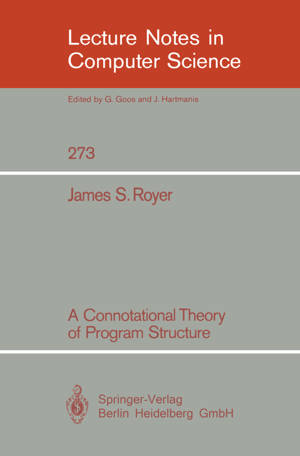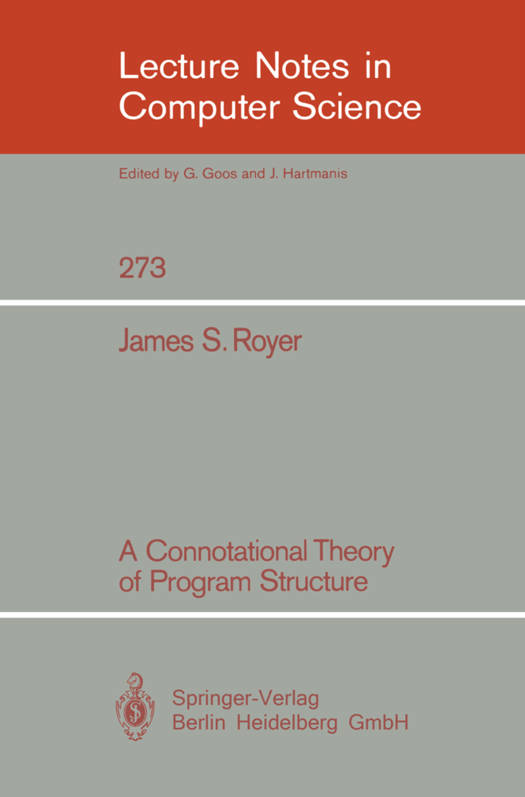
- Afhalen na 1 uur in een winkel met voorraad
- Gratis thuislevering in België vanaf € 30
- Ruim aanbod met 7 miljoen producten
- Afhalen na 1 uur in een winkel met voorraad
- Gratis thuislevering in België vanaf € 30
- Ruim aanbod met 7 miljoen producten
Zoeken
Omschrijving
This book presents developments of a language independent theory of program structure. The theory features a simple, natural notion of control structure which is much broader than in other theories of programming languages such as denotational semantics and program schemes. This notion permits treatment of control structures which involve not only the denotation of programs (i.e., their input/output behavior), but also their structure, size, run times, etc. The theory also treats the relation of control structure and complexity properties of programming languages. The book focuses on expressive interdependencies of control structures (which control structures can be expressed by which others). A general method of proving control structures expressively independent is developed. The book also considers characterizations of the expressive power of general purpose programming languages in terms of control structures. Several new characterizations are presented and two compactness results for such characterizations are shown.
Specificaties
Betrokkenen
- Auteur(s):
- Uitgeverij:
Inhoud
- Aantal bladzijden:
- 188
- Taal:
- Engels
- Reeks:
- Reeksnummer:
- nr. 273
Eigenschappen
- Productcode (EAN):
- 9783540182535
- Verschijningsdatum:
- 26/08/1987
- Uitvoering:
- Paperback
- Formaat:
- Trade paperback (VS)
- Afmetingen:
- 156 mm x 234 mm
- Gewicht:
- 281 g

Alleen bij Standaard Boekhandel
+ 105 punten op je klantenkaart van Standaard Boekhandel
Beoordelingen
We publiceren alleen reviews die voldoen aan de voorwaarden voor reviews. Bekijk onze voorwaarden voor reviews.











